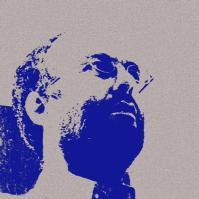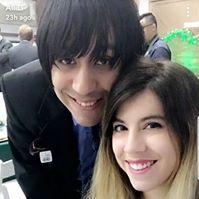Leaderboard
Popular Content
Showing content with the highest reputation on 05/22/2012 in all areas
-
This is a good question to ask. The answers to it (and the explanations) may be many. One explanation I would think of would be that the Romantic style was ahead of its time, or succeeded in creating a universally valid human aesthetic ideal of musical self-expression to which everyone can relate (and which modern music so far hasn't been able to create). The same can be said of the Baroque and Classical periods. Another way to look at it could be that the particular person who chooses to compose in a Romantic style, hasn't caught up with modern music, his/her musical development is still in the stage of Romantic music (or maybe his psyche is experiencing an acceptable form of musical regression). This explanation would be looking at music, and the various styles that have up till now been used in its composition, as a process of human development. I favour this explanation. I think that the Classical and Romantic style certainly present a developmental line. Perhaps hundreds of years later, the music that has come after them will itself represent another, or several such "universally valid human aesthetic ideal(s) of musical self-expression" in the developmental line of music to which future generations might well relate and prefer to adopt (at the cost of the styles pursued at their own time or at the cost of the attempt to forge a new and original style). In a sense what you say is right, and one should not revert to past styles when one lives in the present. But to quote myself in my previous post, "I think being original is a challenge in the sense that one has to be oneself in a context of others. Hence one has also to relate to others; to take others' (and humanity's in general) being, experience, and behaviour into consideration (in going about being oneself); to find an ideal balance between these two (being oneself and taking others into consideration) such that one's being oneself (precisely as a composer, insofar as one is composing for any audience, even oneself - in the sense that one exists in a social context and hence becomes oneself FROM it or proceeding from it) is meaningful to others also, communicates something of relevance to others also...". And this includes the past also. One may hence legitimately choose to relate to past forms of musical self-expression as one's context (of others, and other music) to be (and compose) originally in. To return to the original topic of the thread (and to link all this discussion to it), I think that formal training is useful in this "relating to one's context" aspect. A good composition teacher would provide a great means of relating to the "other composers" as a context to be original in. Hence the benefit may not be so much in the actual teaching, but in this very provision of a context - to relate to and be original in proceeding from.2 points
-
eh, wth, I'll turn in what I have :) someone today listened to it, and played it for me, and said she loved it, so maybe it doesn't need that much fine tuning1 point
-
Formal training is a valid aspect of becoming a better composer in my opinion. I am assuming that by formal training the question is asking if one should study in a university or under a professor. I just graduated from college and I don't think I would have been able to advance as far if I didn't have a professor pointing me in composition directions I might have otherwise ignored. When I started off, I was writing simply melodic tunes and convinced that I would only write Broadway music. This led me to be sort of close minded to any type of music that wasn't Sondheim or anything related to what's on Broadway in NY. However, my first semester I was pushed to listen to the basics of the basics (like Chopin and at the same time exploring modern music) and attend all the concerts that went on at my university. However, if I had not have had formal training, I would not have chosen to expand my brain in terms of what's out there. It was then when I could apply what I was learning into my own music. Lastly, any questions I have ever had regarding writing for instruments was easily answered instead of having to delve into a thousand books and websites to find the answer. That's not laziness, it's time efficiency with the addition of hearing personal experience writing for said instruments. My personal experience aside, I think composition professors have the potential to make or break a student. I've heard students say they lost their passion, but then when I listen to their music I see no growth or no willing to grow. That's not to say what they are doing is bad, but instead that it grows stale and all sounds the same. What if Chopin wrote 20 piano mazurkas that all had the same emotion and same theme? I am sure everyone would think he's a joke. This is what formal training does - it gives you options and expands your mind. However, if a professor isn't working for you, then you should simply switch or take the solo route; there's no real true answer on how to get better at composing or what is 'necessary' to become a proficient composer, but the number one thing that I feel is necessary is being open-minded which would make formal training a much more rewarding process. That's just my two cents. Also, style is a largely overrated aspect that I really learned I did not want to use when defining my own music. If my music sounds romantic, atonal, impressionistic, stupid-onal, etc. then that's up to the opinion of the listener. I write what I feel is vital to represent the music as music, not as something that suits a generalized genre. I understand why each specific style is important for history's sake, but I think professors want to tell their students that they should not be thinking 'style' when they write. I think every style is acceptable, but to be able to write in each style in order to mold a composer's own skillset is a skill that truly defines a composer's voice from someone who "wants to be a romantic composer."1 point
-
Quite a negative definition of being oneself! I think as long as you are putting the emphasis on others, even though in order to try not to be like them, you are not genuinely being yourself. I think one should not go out of one's way to try not to sound like others, but rather try to positively write what one is genuinely inspired to, what one's inner psyche dictates. In this sense, listening to others' music as a source for compositional ideas (let alone trying to consciously follow their lead or avoid doing so) can possibly even act as a deterrent to originality or being oneself. As a concrete personal example of this, I used to listen to music a lot more before I became more active as a composer. My own definition of "being yourself" would be the following (as already hinted at in the paragraph above): listening to one's own inner voice and trying to compose what it dictates, in the final analysis regardless of one's potential audience's perceived or anticipated reactions, and without any attempt to please or earn their praise. I believe that genius and originality are never (and ought never be) about seeking one's audience's approval or praise, or the reward that would accompany such approval and/or praise. While approval and praise could serve as objective indications or objective criteria of one's success as a composer, they are only the indirect outcome of true originality and the true discovery of one's voice as a composer, never the aim themselves. Should they become the aim (or the conscious aim at least), the music becomes reduced into a mere means to garner praise and social approval and, in my opinion, falls short of the requirements for being characterized as original! "Being oneself" would also mean to compose music related to one's experience and being, and somehow expressing them; not trying to imitate others (whose original music would have come from their own unique experience which one does not and cannot share). I think being original is a challenge in the sense that one has to be oneself in a context of others. Hence one has also to relate to others; to take others' (and humanity's in general) being, experience, and behaviour into consideration (in going about being oneself); to find an ideal balance between these two (being oneself and taking others into consideration) such that one's being oneself (precisely as a composer, insofar as one is composing for any audience, even oneself - in the sense that one exists in a social context and hence becomes oneself FROM it or proceeding from it) is meaningful to others also, communicates something of relevance to others also, and yet such that one's attempts to be meaningful to others and to address others do not get in the way of one's self-fulfilment, self-realization and self-expression as a composer. After all, one has to fulfill oneself and be oneself among other people, unless one plans to live in solitude (but even solitude proceeds from and is a getting away from - and hence takes for granted being in - a society). But composition, to me at least, is a social act. It is the distillation of social experience through the unconscious and the psyche. Even personhood is to some extent socially created. To me composition is not only an act, but a process of active becoming. Perhaps composition is one form of self-creation. Finally, I think being original is often more about saying the same things (others have said before one) in new ways, than about saying something new in the same way (others have said before one).1 point
-
There's so much I want to respond to on this thread, but I think I'm going to have to come back to it at some point. I did say "largely self-taught." In any case, some of them did have very little formal training because some people are just better able to teach themselves. Such people are perhaps few and far between, but they exist. I don't agree that there has to be some correlation between taking lessons and being original. The opposite result is going to be just as likely, and perhaps more likely if you have an overbearing teacher. In my experience, most people tend to be overbearing and authoritarian (in all walks of life, I mean), even if it's not immediately apparent. Do you consider Michelangelo to be an irrelevant sculpturist because he essentially copied Hellenic and Hellenistic techniques and style? How about so much of the rest of the Renaissance movement, which looked backward in an attempt to re-create much of a past civilization? What about the Enlightenment which also did much the same thing? Was Brahms relevant? (Lots of people at the time thought he wasn't.) Shostakovich? Rachmaninoff? Is my English irrelevant because I'm following general spelling and grammar and coming up with "miself 2 xprs phunky nu wayz?" Note, however, that in all those cases, it could never be an exact copy of what had preceded, and I submit that even if there were a composer today attempting to write in a Beethovenian or Mozartean style (I mean an actual good composer, not someone who is doing some superficial copy of their music), it wouldn't be the same and they would eventually develop in another direction. The evidence is in how many other composers started off sounding like someone else (though even there you often sensed their individuality) and developing on their own path.1 point
-
yes, please please please, I'm in a concert band and I've played both flute and oboe, which are pretty much opposites in how long they can last. Based on how much resistance in the instrument there is, flute would last 4 bars at 60 bpm and oboe at the complete other end would last around 8, again, that's at 60 bpm. This is taken largely from personal experience and is different for everyone, but this is usually the norm. also, with circular breathing, a wind player would fist learn double tounging, triple tonguing, quadruple tonguing, tonguing upside down, triple tonguing with a perfect sound quality while constantly being stabbed at the lungs, circular breathing...aka, it's hard, never assume the player can do it. Hope this helps!1 point
-
If you would like to take part of the 8 bit challenge, read on. The 8 bit challenge is a chance for you to show off your orchestration skills. The idea is to take music from an older system, such as atari, nintendo or sega, and fully orchestrate an old tune. We will really accept all music from any system, but to keep it interesting, the systems should be older, pre 2000. Super Nintendo, and even Nintendo 64 music will count in this challenge. Please stray away from Game Cube, Xbox, and systems that use CD quality music, even if the system is an oldie (eg: Sega Genesis CD). Please only submit music when challenges are submitted in this forum. Once a challenge is submitted, it will never close, and anyone can join the challenge at any time. Challenges may be posted by members, however the member must embed a YouTube video (using the [ youtube ]youtube url here[ /youtube ] tags) of the video game theme being presented. The winner of these competitions will be awarded online radio air time to be broadcast for a virtual concert. YC will submit announcements to the entire YC community about who are winners are, and when they should tune in! Here are some examples of orchestrated Nintendo music: http://www.youtube.com/watch?v=0yrjepmeYZk http://www.youtube.com/watch?v=7R0J_a8jlKA1 point



